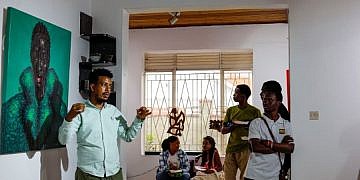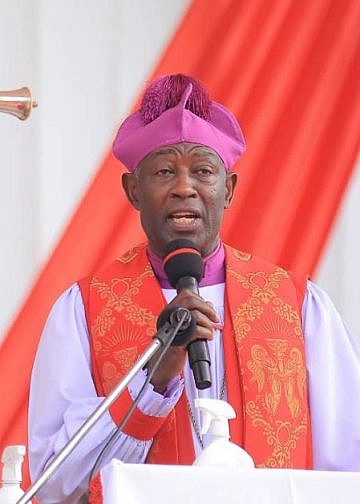The Uganda Law Society’s Greater Masaka Chapter has temporarily suspended its sit-down strike, following a renewed commitment by the Judiciary to address the chronic staffing shortages and ballooning case backlog at the Masaka High Court circuit.
The breakthrough comes after a high-level closed-door meeting between top judicial leadership and the Radical New Bar, representing lawyers in the region.
The strike, which began on June 12, was triggered by what Masaka-based lawyers have long described as “chronic case backlog and gross understaffing,” issues that have left thousands of litigants across the region’s ten districts in prolonged legal limbo.
The turning point followed a critical engagement last week involving Chief Justice Alfonse Owiny-Dollo, Principal Judge Dr. Flavian Zeija, and the Uganda Law Society (ULS) leadership, who met specifically to resolve the deepening crisis at the Masaka circuit.
Legal practitioners say the meeting was instrumental in shaping the decision to pause the strike and explore solutions.
In a statement issued Thursday, June 26, Masaka Bar chairperson Alexander Lule confirmed the suspension of the protest.
He cited a Judiciary press release dated June 25, which outlines immediate steps, including the deployment of visiting judges to Masaka and the ramping up of court session frequency to tackle case backlogs.
While Lule welcomed the Judiciary’s response, he made it clear that the Masaka Bar expects more comprehensive reforms.
“We acknowledge the efforts, but much more must be done to resolve the deep-rooted backlog and resource constraints affecting the Masaka region, home to over two million people,” he said.
As part of their long-term proposal, the Masaka Bar is demanding: the immediate deployment of at least 12 resident judges and five registrars; full implementation of the Electronic Court Case Management Information System (ECCMIS) in Masaka to boost efficiency and transparency; and expedited resolution of internal cases within the Uganda Law Society and Judicial Service Commission that have hindered smooth legal operations.
“If our top three leaders were active in office, communication and coordination with the Judiciary would have been smoother,” Lule added, in a pointed remark about the state of leadership within the legal fraternity.
The strike suspension also comes ahead of a planned goodwill visit by Acting Principal Judge Hon. Lady Justice Jane Okuo Kajuga, scheduled for Monday, June 30.
She is expected to hold consultations with court users and legal professionals on the ground to further assess the situation and guide next steps.
“We commend the Judiciary’s responsiveness and look forward to a conclusive agreement that could bring a permanent end to the strike,” Lule concluded.
For years, the Masaka High Court circuit responsible for serving more than two million residents has been overwhelmed by delays in resolving criminal, land, and civil cases due to a severe shortage of judicial officers.







































